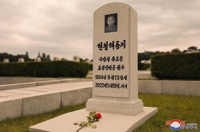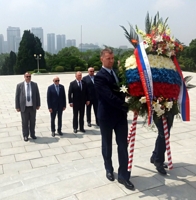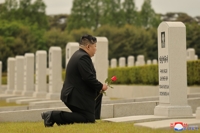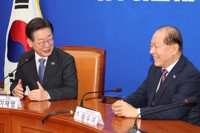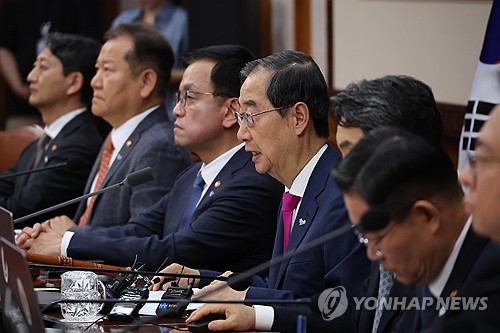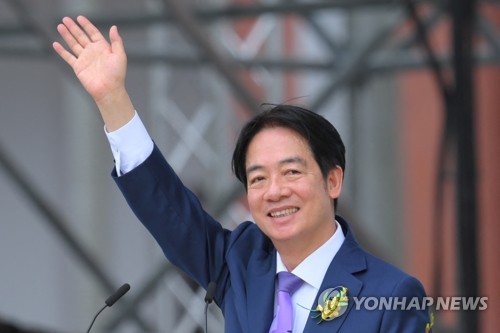(LEAD) Minister: N. Korea, U.S. apart over details of denuclearization
(ATTN: UPDATES with more comments in last 4 paras)
SEOUL, May 17 (Yonhap) -- South Korea's top diplomat said Thursday there's a gap between North Korea and the U.S. on ways to achieve the common goal of a nuclear-free Korea.
Speaking to lawmakers here, Foreign Minister Kang Kyung-wha said Pyongyang and Washington are "directly communicating" with each other to prepare for their much-anticipated summit talks scheduled to be held in Singapore on June 12.
She recently met with Secretary of State Mike Pompeo in Washington D.C. and they had a phone conversation earlier this week.
Externally, Kang said, North Korea has committed itself to complete denuclearization but "it's true that there's a difference in opinions between the North and the U.S on how to pull off denuclearization." She did not elaborate.
The North's leader, Kim Jong-un, and U.S. President Donald Trump will try to reach a deal on concrete methods when they hold the summit, she added.
The minister refused to attach too much meaning to specific terms to describe the level of denuclearization to be discussed.
U.S. officials have long talked about "CVID," which stands for "complete, verifiable, irreversible dismantlement." Recently, Pompeo used the expression "PVID" for "permanent" denuclearization, sparking media speculation about whether the Trump administration has raised the bar for North Korea.
"Although the 'P' sounds stronger in tone (in terms of the demand for denuclearization), in fact, (the two) mean the same thing," Kang told the National Assembly's committee on foreign and inter-Korean affairs.
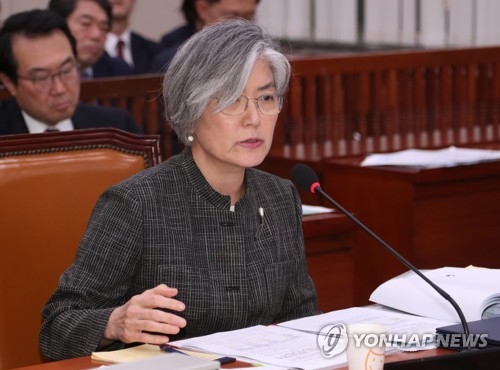
Foreign Minister Kang Kyung-wha speaks at a National Assembly committee session on May 17, 2018. (Yonhap)
On the North's announced plan to demolish its main nuclear testing site in front of foreign media next week, she said it's a "far more meaningful measure" than the 2008 removal by televised explosion of a cooling tower in the Yongbyon nuclear complex.
Asked about whether she trusts the North's young and flamboyant leader, she hesitated a bit and said yes.
She made clear that there's no policy review yet on the possible pullout or scaling-down of the 28,500-strong U.S. Forces Korea (USFK).
The fate of the USFK is an issue to handle prudently, not hastily, unless there's a "radical" change in the Northeast Asian security order, she said.
lcd@yna.co.kr
(END)
-
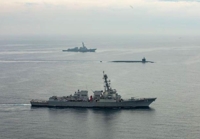 N. Korea slams U.S. subcritical nuclear test, vows measures to bolster nuclear deterrence
N. Korea slams U.S. subcritical nuclear test, vows measures to bolster nuclear deterrence -
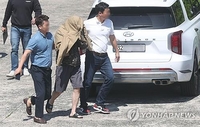 Thailand seeks extradition of S. Korean suspect in Pattaya murder
Thailand seeks extradition of S. Korean suspect in Pattaya murder -
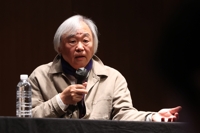 Paik Kun-woo's 1st Mozart album: a return to musical roots
Paik Kun-woo's 1st Mozart album: a return to musical roots -
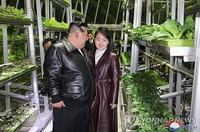 N. Korea's Kim, daughter attend ceremony for new street in Pyongyang
N. Korea's Kim, daughter attend ceremony for new street in Pyongyang -
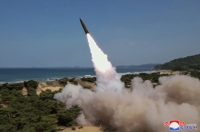 (2nd LD) N. Korea says it test-fired tactical ballistic missile with new guidance technology
(2nd LD) N. Korea says it test-fired tactical ballistic missile with new guidance technology
-
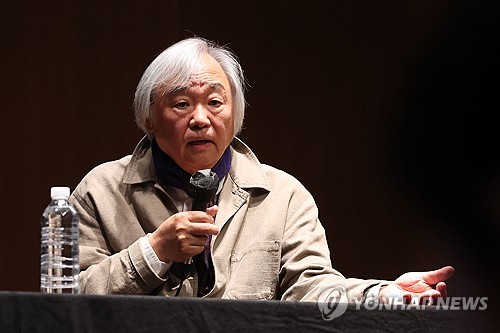 Paik Kun-woo's 1st Mozart album: a return to musical roots
Paik Kun-woo's 1st Mozart album: a return to musical roots -
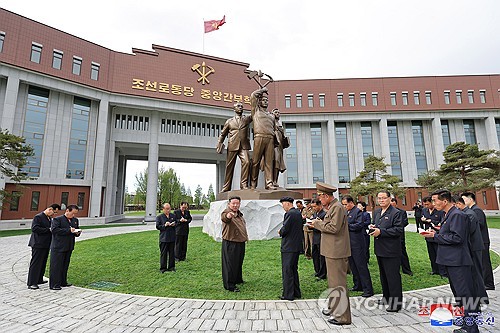 N.K leader visits newly built ruling party training school
N.K leader visits newly built ruling party training school -
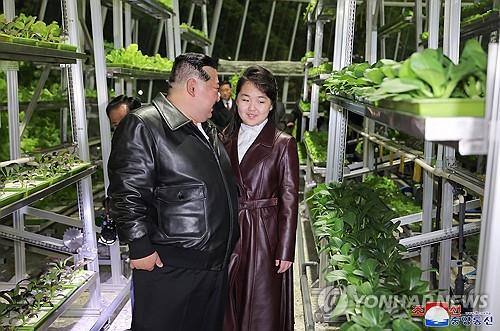 N. Korea's Kim, daughter attend ceremony for new street in Pyongyang
N. Korea's Kim, daughter attend ceremony for new street in Pyongyang -
 (Yonhap Feature) S. Korean women scramble for 'safe breakup' after series of femicides by ex-boyfriends
(Yonhap Feature) S. Korean women scramble for 'safe breakup' after series of femicides by ex-boyfriends -
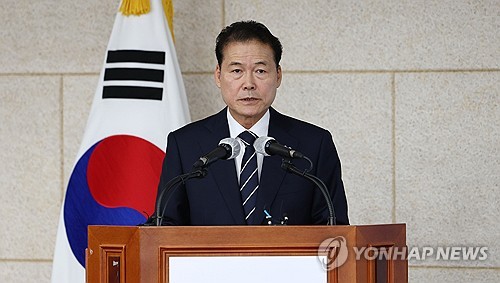 (LEAD) Unification minister criticizes ex-liberal President Moon's memoir
(LEAD) Unification minister criticizes ex-liberal President Moon's memoir
-
 N. Korea slams U.S. subcritical nuclear test, vows measures to bolster nuclear deterrence
N. Korea slams U.S. subcritical nuclear test, vows measures to bolster nuclear deterrence -
 Police to question Hybe officials over complaint against sublabel executives
Police to question Hybe officials over complaint against sublabel executives -
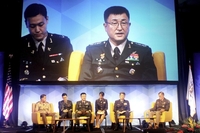 Top S. Korean, U.S., Japanese, Australian Army officials discuss deterrence against N.K. threats
Top S. Korean, U.S., Japanese, Australian Army officials discuss deterrence against N.K. threats -
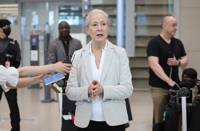 (LEAD) S. Korea, U.S. hold 2nd round of talks on defense cost sharing
(LEAD) S. Korea, U.S. hold 2nd round of talks on defense cost sharing -
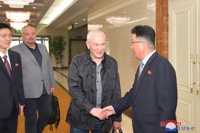 Russian delegation arrives in Pyongyang: KCNA
Russian delegation arrives in Pyongyang: KCNA














